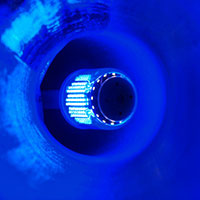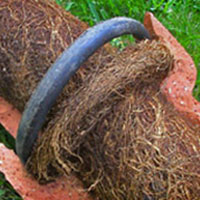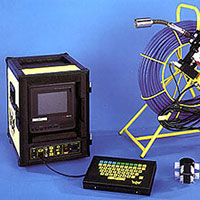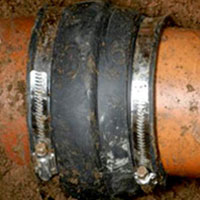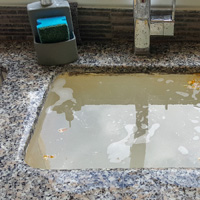Call Premier Drainage Services Today
Call Premier Drainage Services Today
Premier Drainage Services
How to Save Water and Reduce Bills
Water, water everywhere and not a drop to drink
Since we can remember, we have constantly being told to save water by our parents. Those of us that are old enough to remember the sizzling summer of 1976, will remember the drought that saw us lining up in our streets with buckets to be issued with water from a standpipe.
Our gardens burnt to a crisp, cars went unwashed for months and kids rejoiced that bath night had to be postponed again, giving more time to sit and watch the television. But we have almost the same amount of water on the planet today as we did when time began, so why the panic?
Water flows endlessly between the ocean, atmosphere, and land. Earth’s water is actually a finite resource, meaning that the amount of water in, on, and above our planet does not actually increase or decrease as time passes. However, when you consider the percentage of water on our planet that is fresh and suitable to sustain us, and the ever increasing population and demand, it becomes clear that we should do what we can to save water whenever we can.
How old is the water we drink?
The water we drink may well be composed of the same water molecules that have been around since life began on this planet about 4.6 billion years ago.
It’s pretty hard to imagine that the water on our Earth today is the same water that’s been here for nearly over four and a half billion years. Only a small amount of it has escaped out into space. As far as we can fathom, new water has never been formed since the formation of our world.
This fact means there’s a very high probability that the water you are drinking today is the same water that the dinosaurs were drinking about 65 million years ago.
Because of the way water circulates around our planet. Every living organism that has ever lived on Earth is actually part of this water cycle, too.
As water on the surface of lakes, oceans, and rivers warms up, it is evaporated and drawn up into the sky as very tiny droplets, or vapour. When the water vapour gets colder, it turns back to liquid to form clouds, the clouds become heavy with water and it rains, so begins the cycle again.
Water is a vital part of our life
Water is literally a necessity of life. Seventy percent of the Earth’s surface is covered with water and yet, many parts of the world suffer from an acute water shortage. We tend to presume water to be an endless resource. The truth, however, is that water is an exhaustible resource that can deplete quickly if not conserved well.
With global warming and climate change posing new threats to the diversity of flora and fauna, preserving water has become a subject of much debate and varying opinion. Conservation efforts are absolutely essential to ensure an unlimited supply of water for future generations.
How we can save water
We should always remember to turn off taps when we don’t need them on. Even brushing your teeth can use up litres and litres of water if the tap is left running. Consider the average electric toothbrush cycle of two minutes. How many litres will go down the plughole in that time if the tap is left running?
Save water, stay clean
Showering instead of taking a bath can not only save water, it can save time and energy too. Heating up enough water to fill a bath can consume a substantial amount of gas or electric, a shower consumes a fraction of this energy, time and water. Better still, you won’t be sitting in your own dirty water if you opt for a shower.
Think flush
Some toilet cisterns hold a lot of water and use it all when flushed. Modern ones often have smaller tanks or dual flush mechanisms. Even if you have an old fashioned one, there are devices that displace the water, ensuring less enters the cistern, and thus less is flushed away.
Bin it, don’t flush it
In essence, your toilet is a waste disposal unit, but the waste is specific and it comes from us. They are not designed to be a waste disposal unit for rubbish, leftover food or other unwanted items around the house and garden.
Using toilets in this way can not only use extra water when flushing them more often, it can use far more water when they become blocked or clogged with grease and other debris that shouldn’t have been flushed in the first place.
Green and lush garden without wasting water
England is famous the world over for the amount of rain we get every year, but the tide appears to be turning and this reputation is no longer deserved. Sure, it still rains, just nowhere near as much as it used to. The changes in our seasons is becoming more pronounced and sometimes pretty extreme. Very heavy rain following a long dry spell often results in flooding, as the ground is unable to soak up the rain fast enough. Deforestation also has a major effect on the probability of flooding, as trees are known to soak up a huge volume of water. Without the trees, the ground can simply be overwhelmed by the excess rainfall, leading to serious flooding.
We would normally expect the rain to provide a good supply of water for the plants in our garden. So, when we do get rain, check if your plants need water before watering them. Do not just water them out of habit, as this is just a waste of water. You should also refrain from over watering your plants. Over watering not only causes water wastage but also loss of valuable nutrients from the soil, as they will be washed out.
Why not water your garden from a water butt that has collected water naturally. Garden ponds can also be a great source of water for the garden, being replenished when the next rains come. Better still, pond filters contain a fantastic amount of fish waste, so washing them out and using the dirty water for your garden, offers you free manure too.
Even old washing up and bath water can easily be used for the benefit of the garden, indoor plants and window boxes. The soaps we use rarely do any harm to plants and can in fact be beneficial in eradicating aphids and other garden pests.
Use a watering can instead of a hose
You can save a huge volume of water by opting to water your garden with a watering can instead of a hose. We tend to use far too much water when a hose delivers it, whereas a watering can is a more targeted approach, using far less water.
Plant drought tolerant plants
Instead of planting water hungry plants, opt for some ornamental grasses and maybe some architectural plants from warmer countries that can thrive in our climate. Many of these require little water and will save literally bucket loads over the course of the year.
Water garden and plants in the morning
Because the sun is not as hot in the morning, less water is lost to evaporation. This simply means that plants need less water. Later in the day, the sun is far more intense, therefore the evaporation process increases, this leads to a lot of wasted water.
Washing machines and dishwashers can help too
Older washing machines often use over fifty gallons of water per wash cycle. A high-efficiency washing machine can cut this down to well under ten gallons. Also try to only launder full loads and wait until you have a full dishwasher before flicking it on. This means you are not just saving water but also energy, leaving more money in your pocket at the end of the day.
Spray and leave fungicides can save a lot of water
Your paths, patios and driveways can get dirty, mossy and even slippery with algae, particularly over the winter months, and this needs cleaning before we start using our gardens again. Instead of reaching for the pressure washer, which uses gallons of water, invest in a spray and leave fungicide. These often continue to work long after they have been applied, and can be child and pet safe once dry.
Don’t use a pressure washer on your car
A pressure washer can seriously damage the paint work and fixtures on your car. The pressure behind them is enough to rip into paint if held too close and will use loads of water. A bucket, sponge, microfiber cloth and a chamois leather are all you need for most wash scenarios. Waterless wash and wax formulations are another good idea too.
Get any leaks fixed as a priority
Get any leaky pipes or taps fixed as soon as you can. A dripping tap can waste hundreds of litres of water in a relatively short period of time. Just try leaving a bucket under one and you’ll be shocked at how quickly it fills.
A leaking garden pond is another major source of wasted water. Some people have had to leave a hose constantly trickling into their pond to keep it topped up.
Even during a hose pipe ban in the United Kingdom, a pond that sustains living creatures is exempt from the ban, but this doesn’t mean to say you should be allowing a hose to run endlessly into it.
Allow the water level to fall to the crack or leak if possible. When the water level stops going down, you’ll be able to pin point the leak and get it fixed, saving money and water.
How can eating steak waste water?
It may sound strange, but the meat production industry uses vast quantities of water to feed the animals it raises. Replacing a few meals a week with a vegetarian option will cut down on demand for meat, thus reducing the water needed for the animals being raised for slaughter.
The importance of saving water
Water conservation has not just economic, but environmental benefits too. As our towns and cities expand, we create a growing demand for an unlimited water supply. This demand for water has put excessive pressure on aquifers, which simply cannot keep up with the demand, so the water companies turn to the streams and rivers. Many rivers and streams are drying up because of climate change and the over use of the water that once flowed in them.
There are some major cities in the world that have already run out of groundwater. This does not only pose potential threats to us, but has also affects other life forms on Earth. Each year, more and more species are becoming extinct because of habitat changes caused by water shortages. So be water savvy and save this vital resource.
24/7 Emergency Service
24/7 Emergency Service
CCTV Drain Surveys
CCTV Drain Surveys
Damaged Drains Repaired
Damaged Drains Repaired
Need help? Call us today!
If you need a rapid response to your drain problem then call us today on 01438 222 758 or fill in our contact form to get a FREE QUOTE.
We provide drainage services throughout Hertfordshire, Bedfordshire, Essex and London.
Need help?
Call us today!
If you need a rapid response to your drain problem then call us today on
01438 222 758
or fill in our contact form to get a
We cover Hertfordshire,
Bedfordshire, Essex and London.
Blueline system Revolutionising Industry
When you need to reline a pipe, why not make the most of the very latest Blueline technology? This is an amazing cured-in-place pipe repair and relining system that offers a no-dig solution for clearing and repairing damaged pipes.
Blueline is quickly revolutionising the way the drainage industry tackle damaged and blocked pipes because this trenchless plumbing repair system causes no disruption to your home or business with ugly, expensive and time-consuming excavation works.
How to Save Water and Reduce Bills
Earth’s water is actually a finite resource, meaning that the amount of water in, on, and above our planet does not actually increase or decrease as time passes. However, when you consider the percentage of water on our planet that is fresh and suitable to sustain us, and the ever increasing population and demand, it becomes clear that we should do what we can to save water whenever we can.
Drain Issues, from vermin to roots incursion
We’ve all been there at some point in our lives! You flush the toilet or pull out the plug, only for the water to remain at the same level. Often, a quick plunge will do the trick, or if this fails, a chemical solution can clear the blockage, but what if the issue is beyond these remedies? Worse still, imagine having vermin such as rats or mice taking up residence within your drainage system, maybe even gaining access to the rest of your property through this unsanitary entry point.
Importance of a Drainage Survey
A drainage survey is the process of examining the condition of a drainage system and finding out what has caused an issue which allows us to decide upon the best solution to resolve it. The technology used for inspecting and surveying drains, sewers and other types of piping has become essential simply because of how cost-effective, safe and quickly you can get results. The methods used today mean that excavation is rarely required, saving time, disruption, mess and money.
Consequences of a Broken Drain
We’ve all been there from time to time. We pull the plug and the water either drains away slower than it should, or it just sits there, refusing to drain.
Often this may simply require a good blast of boiling water from the kettle to melt away any fat deposits that could be preventing the water from draining, or a chemical from the shops to eat away at the cause of the blockage. However, sometimes no amount of hot water and chemicals will shift the water and this may be because of a severe blockage or a damaged or broken drain.
Broken Drains
A broken drain can be anything from a mild annoyance to and absolute nightmare. Broken drains will allow water, possibly foul or even soiled toilet waste to leak out into the surrounding land, or cause toilets and sinks to overflow inside the property the drains service.
You need to remain vigilant and ensure any slowing of water draining, or rising water in the toilet bowl are addressed as soon as they are noticed to avoid the potentially serious damage that could occur if ignored.


